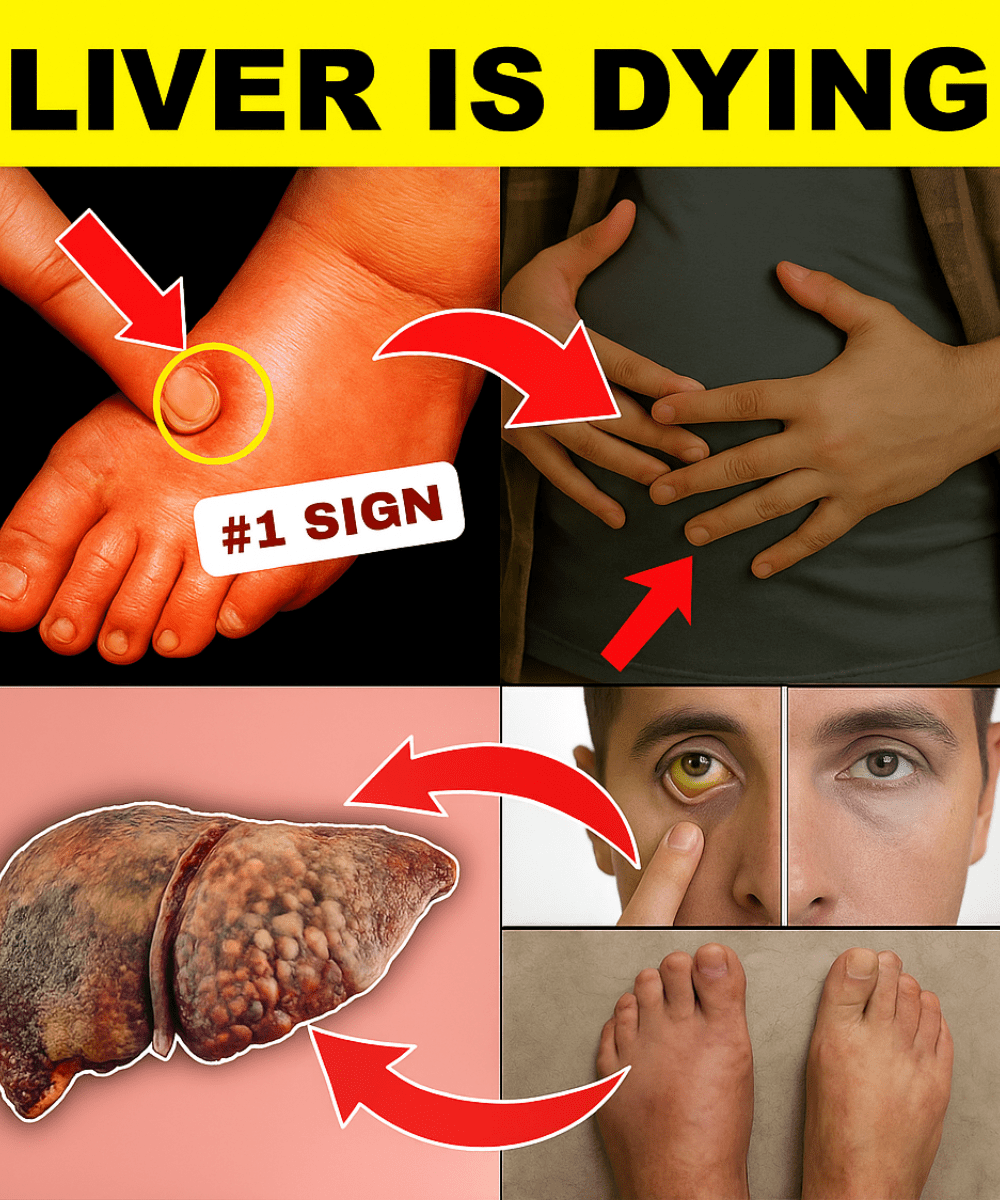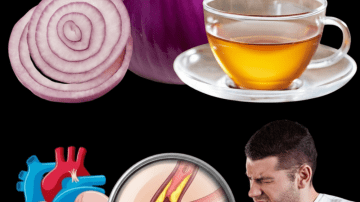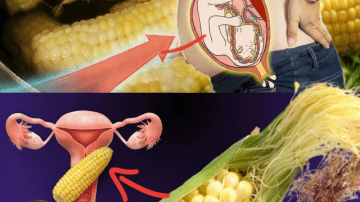Your liver is the unsung hero of your body, tirelessly detoxifying your blood, storing vital nutrients, and powering digestion. It works around the clock without fanfare, but when it’s in trouble, it doesn’t scream for attention. Instead, it whispers through subtle symptoms that are easy to overlook—until it’s too late. Catching these early warning signs could be the key to preventing serious liver damage and safeguarding your health. Are you ready to listen to your body and uncover the clues your liver might be sending? Dive into this guide to discover the 15 critical signs of liver distress and learn how to protect this vital organ before it’s too late.

🌿 Why Your Liver Matters
The liver is a powerhouse, performing over 500 functions to keep you thriving. From filtering toxins to producing bile for digestion, it’s a multitasking marvel. But factors like poor diet, excessive alcohol, medications, or infections can push it to its limits. When your liver struggles, your entire body feels the impact. Recognizing the early signs of trouble can help you act swiftly, potentially reversing damage and restoring balance. Let’s explore the 15 warning signs that could indicate your liver needs attention, along with practical steps to support its health.
😴 Constant Fatigue That Won’t Quit
Feeling exhausted no matter how much you sleep? Persistent fatigue is one of the earliest red flags of liver stress.
Why It Happens
When your liver can’t filter toxins efficiently, they build up in your bloodstream, forcing your body to work harder. This drains your energy, leaving you sluggish even after a full night’s rest.
What to Do
If fatigue lingers despite good sleep habits, consider a liver-friendly diet rich in greens and whole foods. Consult a doctor to rule out liver issues or other underlying causes.
👁️ Yellowing Skin or Eyes (Jaundice)
A yellowish tint on your skin or the whites of your eyes is a classic sign of liver trouble.
The Bilirubin Connection
Jaundice occurs when your liver struggles to process bilirubin, a waste product from red blood cells. This buildup causes a telltale yellow hue.
Take Action
If you notice yellowing, seek medical attention promptly. It could signal liver inflammation, blockages, or more serious conditions like hepatitis.
🚽 Dark or Tea-Colored Urine
Unusually dark urine, resembling tea or cola, is a subtle but serious warning sign.
What’s Behind It
Excess bilirubin in your system, often due to liver dysfunction, can darken your urine. This is a clear signal that your liver needs help.
Next Steps
Stay hydrated and monitor your urine color. If the darkness persists, a doctor can run tests to assess liver function.
💧 Pale or Clay-Colored Stool
If your stool looks pale, gray, or clay-like, your liver or bile ducts may be struggling.
Bile Production Issues
The liver produces bile to aid digestion and give stool its brown color. A blockage or reduced bile flow can result in pale stools.
Act Quickly
Persistent pale stools warrant a medical evaluation to check for liver or gallbladder issues.
🌊 Swelling in the Abdomen, Legs, or Ankles
Unexplained swelling, known as edema or ascites, can signal liver trouble.
Fluid Imbalance
When the liver can’t regulate proteins and fluids, they accumulate in tissues, causing swelling in the belly, legs, or ankles.
Seek Help
If you notice swelling, especially in the abdomen, consult a healthcare provider to investigate liver function or circulatory issues.
🩺 Itchy Skin Without a Cause
Persistent itching, particularly on your arms, legs, or torso, could point to liver issues.
Bile Salt Buildup
When bile salts accumulate under the skin due to liver dysfunction, they trigger intense itching.
Soothe and Investigate
Avoid scratching to prevent skin damage, and see a doctor to check for liver-related causes of itching.
🍽️ Loss of Appetite or Feeling Full Quickly
If you’re barely hungry or feel full after small meals, your liver might be struggling.
Digestive Slowdown
Liver inflammation can slow digestion, reducing your appetite and causing discomfort after eating.
Support Your Liver
Opt for small, nutrient-dense meals and avoid heavy, processed foods to ease the burden on your liver.
🤢 Persistent Nausea or Vomiting
Ongoing nausea or vomiting could indicate toxin buildup due to liver dysfunction.
Toxins in the System
When the liver can’t detoxify properly, toxins irritate the digestive tract, leading to nausea.
When to Act
If nausea persists, especially with other symptoms, a medical evaluation is essential to pinpoint the cause.

😖 Pain in the Upper Right Abdomen
A dull ache or discomfort under your right ribs is a direct signal from your liver.
Inflammation or Swelling
This pain often stems from liver inflammation, swelling, or conditions like fatty liver disease.
Don’t Ignore It
Persistent abdominal pain requires a doctor’s attention to assess liver health and rule out serious issues.
🩹 Easy Bruising or Bleeding
If you bruise easily or experience frequent nosebleeds, your liver may not be functioning properly.
Clotting Protein Deficiency
The liver produces proteins essential for blood clotting. When it’s compromised, bruising and bleeding become more common.
Get Checked
Frequent bruising or bleeding calls for a blood test to evaluate liver function and clotting factors.
🧠 Mental Confusion or Brain Fog
Struggling to focus or feeling mentally foggy? Your liver might be to blame.
Toxin Buildup in the Brain
When the liver fails to filter toxins, they can reach the brain, causing confusion, poor memory, or difficulty concentrating.
Seek Clarity
If brain fog persists, consult a healthcare provider to explore liver-related causes and solutions.
💪 Muscle Weakness or Wasting
Unexplained muscle weakness or loss of muscle mass could signal liver trouble.
Metabolic Disruption
Liver disease can disrupt metabolism, leading to muscle breakdown and reduced strength.
Strengthen and Assess
Incorporate protein-rich foods to support muscle health, and see a doctor to evaluate liver function.
🔴 Red Palms or Spider-Like Veins
Red palms (palmar erythema) or small, web-like veins (spider angiomas) are telltale signs of liver issues.
Hormonal Imbalances
Liver dysfunction can disrupt hormone regulation, leading to these visible skin changes.
Monitor and Consult
If you notice these signs, track them and discuss with a healthcare provider to assess liver health.
🌕 Swollen Belly (Bloating)
A tight, swollen belly could indicate advanced liver problems.
Ascites and Fluid Retention
Fluid buildup in the abdomen, known as ascites, is a serious sign of liver dysfunction, often linked to cirrhosis.
Urgent Action Needed
A swollen belly requires immediate medical attention to diagnose and treat underlying liver conditions.
👅 Bad Breath or Metallic Taste
A persistent metallic or bitter taste in your mouth, paired with bad breath, could signal liver distress.
Waste Buildup
When the liver struggles to filter waste, it can lead to unpleasant tastes and odors in the mouth.
Address the Cause
If this symptom persists, a doctor can help determine if it’s linked to liver function or other issues.
🥗 How to Protect Your Liver Naturally
Your liver is resilient, but it needs your support to stay healthy. Here are practical steps to keep it thriving:
Adopt a Liver-Friendly Diet
Focus on fruits, vegetables, lean proteins, and whole grains. Limit processed foods, sugar, and saturated fats to reduce liver strain.
Limit Alcohol
Excessive alcohol is a leading cause of liver damage. Stick to moderate or no alcohol consumption to protect your liver.
Stay Active
Regular exercise helps maintain a healthy weight, reducing the risk of fatty liver disease.
Hydrate and Rest
Drink plenty of water and aim for 7–8 hours of sleep to support your liver’s detoxification processes.
Monitor Medications
Some medications can stress the liver. Work with your doctor to ensure safe use, especially if you take them long-term.
Get Routine Checkups
Regular liver function tests can catch issues early, especially if you’re at risk due to family history or lifestyle factors.
Important Note: If you notice any of these symptoms, especially in combination, consult a healthcare professional promptly. Early intervention can prevent serious liver damage and improve outcomes.
🌟 Why You Can’t Ignore Your Liver’s Signals
Your liver is a silent workhorse, but it’s not invincible. The 15 warning signs above are your body’s way of waving a red flag, urging you to pay attention. From fatigue and jaundice to swelling and brain fog, these symptoms are more than inconveniences—they’re clues that your liver needs help. By acting early, you can prevent minor issues from becoming major health challenges.
Taking care of your liver doesn’t require drastic changes. Simple habits like eating well, staying active, and scheduling regular checkups can make a world of difference. Your liver works hard for you—return the favor by listening to its signals and giving it the care it deserves.
💡 Take Control of Your Liver Health Today
Don’t wait for subtle symptoms to become serious problems. Start by assessing your lifestyle—are you supporting your liver with healthy habits? If you’re experiencing any of these warning signs, reach out to a healthcare provider for a thorough evaluation. Your liver is the key to your overall well-being—protect it today, and it will keep you thriving for years to come.






